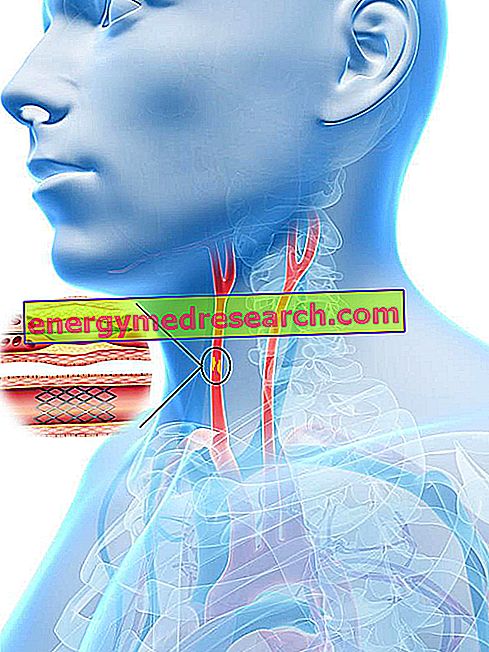
About BCAA Hardcore - Muscletech
BCAA Hardcore - Muscletech
Food supplement of branched chain amino acids with Vitamin B6 and Vitamin B12
FORMAT
Pack of 150 tablets
INGREDIENTS: Blend of branched amino acids - Stabilizers: microcrystalline cellulose, calcium phosphate, polyvinylpyrrolidone - Anti-caking agents: hydroxypropyl methylcellulose, stearic acid, magnesium stearate, silicon dioxide - Coating: hydroxypropyl methylcellulose, titanium dioxide, polydextrose, medium-chain triglycerides Sweetener: sucralose - Pyridoxine chlorohydrate - Cyanocobalamin.
For 5 tablets: L-leucine 2024 mg - L-valine 1012 mg - L-isoleucine 1012 mg - Vitamin B6 3 mg - Vitamin B12 1.5 mcg

Branched chain amino acids - belonging to the group of essential amino acids, must necessarily be introduced through food. The easy availability of food of Leucine, Isoleucine and Valine, satisfies the need for branched chain amino acids without too many dietary sacrifices, even in vegetarian food plans. Absorption occurs at the intestinal level, through a transport facilitated by sodium, and the metabolism is mainly muscular. Several scientific evidences, in fact, have shown that these three amino acids, in the appropriate concentrations, can bypass the first hepatic metabolism and reach the muscle tissue, where they are used differently depending on the nutritional and physio-pathological state of the individual. Like all other amino acids, they are part of the plastic and energy functions, representing an excellent substrate both for the anabolic processes of protein synthesis and for the catabolic ones necessary for sustaining energy. However, the high muscular tropism (representing about 1/3 of the total amino acid pull of the muscle) and the high amount of scientific work in sports, has launched these amino acids among the most used supplements for athlete's supplementation.
BCAA and Sport
The first evidence on the key role of branched-chain amino acids in the sports field came with the first studies that showed an important depletion of plasma and tissue levels following physical activity, quickly accompanied by a growing feeling of fatigue. Among the three amino acids, however, leucine seemed to be the one most affected by the noticeable drop, so much as to decrease by 33% following aerobic exercise and 30% following sessions of strength exercises.

- Reduce the feeling of fatigue;
- Support muscle energy capabilities, gluconeogenesis and improve the glucose-alanine cycle;
- Reduce markers of muscle damage, such as creatine kinase and lactic dehydrogenase, thereby exerting an anticatabolic and antiproteolytic action;
- Support the immune system, protecting the athlete from possible infections;
- Improvement of carbohydrate metabolism;
- Support the body's anabolic abilities by improving the secretion of testosterone, GH and insulin, and reducing that of cortisol.

The molecular pathway with which they act remains to be clarified, although preliminary studies have shown a potential role of HMB- hydroxy methyl butyrate, a metabolite of leucine, in reducing protein degradation and increasing protein synthesis.
Vitamin B6 - also known as pyridoxine, is transformed and phosphorylated at the hepatic level into pyridoxal phosphate, an important coenzyme involved in numerous key reactions of amino acid metabolism (transamination and oxidative deamination), lipid (sphingolipid synthesis) and glucidic. It is therefore easy to understand the usefulness of this vitamin in supporting the correct oxidation and transamination of branched chain amino acids, necessary to guarantee the metabolic-nutritional action of the BCAAs. The daily requirement of vitamin B6 is around 1 / 1.5 mg, but even in this case deficiency episodes are very rare.
Vitamin B12 - heterogeneous group of vitamins, characterized by the presence of a cobalt ion. The forms available in the human body are methylcobalammine and 5-deoxiadenosilcobalammina, although it is commonly introduced in the form of cyanocobalamine.
For it to arrive intact and available at the ileal level, the site of its absorption, it is necessary before it binds to the intrinsic factor, a molecule produced by the parietal cells of the gastric mucosa. Once bound to the transcobalamin, it can therefore reach the various tissues where it acts as a cofactor in the reactions conducted by:
- methionin synthase: mediator of the homocysteine detoxification reaction, therefore important in the prevention of cardiovascular risks;
- methylmalonyl-CoA mutase: important in energy metabolism from fats and proteins and also involved in the synthesis of EMOGLOBIN.
Vitamin B12 deficiencies are quite evident in the elderly population over 60 years, with consequent increase in homocysteine levels, onset of anemic pictures (pernicious anemia) and gastrointestinal and neurological disorders.
Its daily requirement for the Italian population is estimated at around 20 mcg, but the contribution should increase in the population over 60, in athletes and in high-protein diets.
Suggested use by the company - BCAA Hardcore - Muscletech
5 tablets once a day with water or juice.
Use in sports - BCAA Hardcore - Muscletech
Also in this case, as for many other supplements, the share of branched chain amino acids to be integrated into the common diet is closely related to the type of physical activity performed, to the physiopathological condition and to the nutritional and dietary status. In fact, in order to draw up an effective supplementary protocol, it is necessary to take into account the protein and amino acid content introduced with the diet, and possibly integrate it with specific products.
In any case, various studies show quite different dosage ranges, just as individual needs are different, especially when it comes to competitive athletes. For example, professional cyclists can also demand up to 250 mg / kg, which for a 70 kg athlete translates into about 18 grams per day, while the recommended dose for the standard population stops at 83 mg / kg / day, then at about 6 grams / day for a 70 kg man (in both cases, of course, it is necessary to maintain the correct distribution Leu / Isole / Val 2: 1: 1).
Naturally in these quotas the food ration should also be included.
Timing: most studies seem to agree on pre-workout administration, precisely 60 'before training, although the plasma peak varies from individual to individual and ends within a few hours. This administration should guarantee the lowering of plasma levels of aromatic amino acids, the reduction of the sensation of fatigue, and above all provide an amino acid surplus necessary for any oxidation, thus saving the muscle from excessive proteolysis.
Precompetitive administration (during training or competition), however, does not seem to give benefits in terms of ergogenic comparable to those obtainable with carbohydrates, neither less myoprotective than those obtainable with the pre-work out intake. In the recovery phase, they could be used in the functional and structural restoration of skeletal myofibrils, but all the other essential amino acids should also be supplied simultaneously, although different evidences also show an inducing action on insulin secretion mediated by the BCAAs.
The intake should be carried out on an empty stomach, in order to avoid any competitive reaction in the absorption mechanisms with other amino acids.
If you want to use the most common dosage (100mg / kg), and assuming a 70kg man as an athlete, you should use about 9 tablets in 2 tranches: 5 tablets, one hour before training and the remaining 4 in the immediate post work out.
BCAA Hardcore Synergies - Muscletech
BCAA + Arginine: a study carried out on 8 healthy volunteers shows a significant reduction in phenylalanine levels (muscle proteolysis marker) following physical exercise preceded by integration with 2 g of BCAA and 0.5 g of arginine.
BCAA + Carbohydrates: some studies show a useful synergy to reduce the feeling of fatigue during athletic performance (potential role of BCAAs), and improve performance (energy role of carbohydrates). In the post work out, on the other hand, the BCAAs seem to improve insulin sensitivity, therefore glycogen resynthesis in the presence of CHO, while high glycemic index carbohydrates, increasing insulin secretion, can both favor the absorption of the same BCAAs and support the anabolic phase
BCAA Hardcore Side Effects - Muscletech
The long-term side effects of a diet too rich in proteins or amino acids are well known. Renal damage, dehydration induced by increased urinary secretion, lipidemic alterations and associated pathologies, tissue acidosis and bone demineralization, are just some of the consequences of an unbalanced diet that lasts over time.
Acute BCAA ingestion appears to be well tolerated and free of side effects, even when concentrations rise to 450mg per kilogram of body mass.
Precautions for use BCAA Hardcore - Muscletech
The product is contraindicated in cases of renal or hepatic disease, cardiovascular disease and / or hypertension, during pregnancy, during lactation, under 12 years and for adolescents not yet trained.
In the event of prolonged use (over 6/8 weeks), medical advice is required.
This article, elaborated on the critical re-reading of scientific articles, university texts and common practice, is for informational purposes only and is therefore not a medical prescription. It is therefore always necessary to consult your doctor, nutritionist or pharmacist before starting to use any kind of supplement . Further information on the critical analysis of BCAA Hardcore - Muscletech.
| BIBLIOGRAPHY |
J Strength Cond Res. 2010 Apr 7. [Epub ahead of print] BCAA Supplementation Lowers Perceived Exertion But Does Not Affect Performance in Untrained Males. Greer BK, White JP, Arguello EM, Haymes EM. J Strength Cond Res. 2010 Apr; 24 (4): 1125-30. Sharp CP, Pearson DR. J Sports Med Phys Fitness. 2009 Dec; 49 (4): 424-31. Branched-chain amino acid supplementation attenuates muscle soreness, muscle damage and inflammation during an intensive training program.Matsumoto K, Koba T, Hamada K, Sakurai M, Higuchi T, Miyata H. J Nutr Sci Vitaminol (Tokyo). 2009 Jun; 55 (3): 288-91. Effects of squat exercise and amino acid concentration in young women.Shimomura Y, Kobayashi H, Mawatari K, Akita K, Inaguma A, Watanabe S, Bajotto G, Sato J. Int J Sport Nutr Exerc Metab. 2007 Dec; 17 (6): 595-607. Branched-chain amino acid supplementation and indicators of muscle damage after endurance exercise.Greer BK, Woodard JL, White JP, Arguello EM, Haymes EM. Int J Sports Med. 2007 Jun; 28 (6): 531-8. Epub 2007 May 11. Branched-chain amino acids and arginine supplementation attenuated skeletal muscle proteolysis induced by moderate exercise in young individuals.Matsumoto K, Mizuno M, Mizuno T, Dilling-Hansen B, Lahoz A, Bertelsen V, Münster H, Jordening H, Hamada K, Doi T. Med Sci Sports Exerc. 1998 Jan; 30 (1): 83-91. Branched-chain amino acids prolonged during heat stress in men and women.Mittleman KD, Ricci MR, Bailey SP. Sports Med. 1995 Sep; 20 (3): 160-88. Exercise and brain neurotransmission.Meeusen R, De Meirleir K. Amino Acids. 2001; 20 (1): 1-11. Plasma lactate, GH and GH-binding protein levels in exercise following BCAA supplementation in athletes.De Palo EF, Gatti R, Cappellin E, Schiraldi C, De Palo CB, Spinella P. J Sports Med Phys Fitness. 2000 Sep; 40 (3): 240-6. Effects of branched-chain amino acid supplementation serum creatine kinase and lactate dehydrogenase after prolonged exercise.Coombes JS, McNaughton LR. Sports Med. 1999 Jun; 27 (6): 347-58. Leucine supplementation and intensive training.Mero A. and to allow maintenance of a high level of performance. J Cell Biochem. 2010 May 12. [Epub ahead of print] Potential role of branched-chain amino acids in glucose metabolism through the accelerated induction of the glucose-sensing apparatus in the liver.Higuchi N, Kato M, Miyazaki M, Tanaka M, Kohjima M, Ito T, Nakamuta M, Enjoji M, Kotoh K, Takayanagi R. Adipose tissue branched chain amino acid (BCAA) metabolism modulates circulating BCAA levels. Herman MA, She P, OD Peroni, Lynch CJ, Kahn BB. J Biol Chem. 2010 Apr 9; 285 (15): 11348-56. Epub 2010 Jan 21. //jn.nutrition.org/cgi/content/full/135/6/1547S Int J Sports Med. 2007 Jun; 28 (6): 531-8. Epub 2007 May 11. Branched-chain amino acids and arginine supplementation attenuated skeletal muscle proteolysis induced by moderate exercise in young individuals.Matsumoto K, Mizuno M, Mizuno T, Dilling-Hansen B, Lahoz A, Bertelsen V, Münster H, Jordening H, Hamada K, Doi T. |



